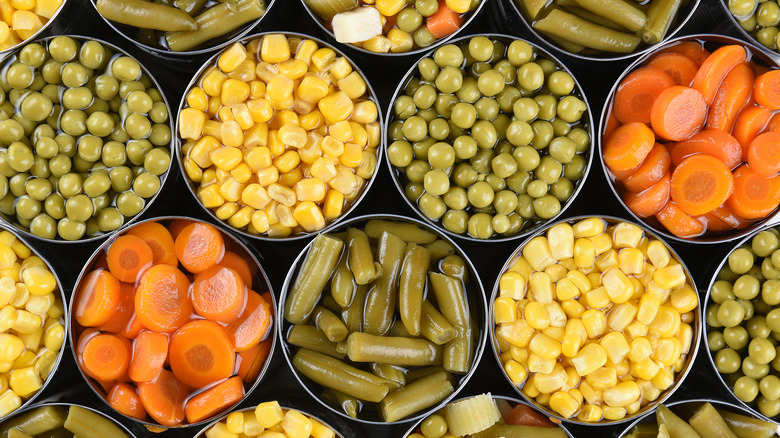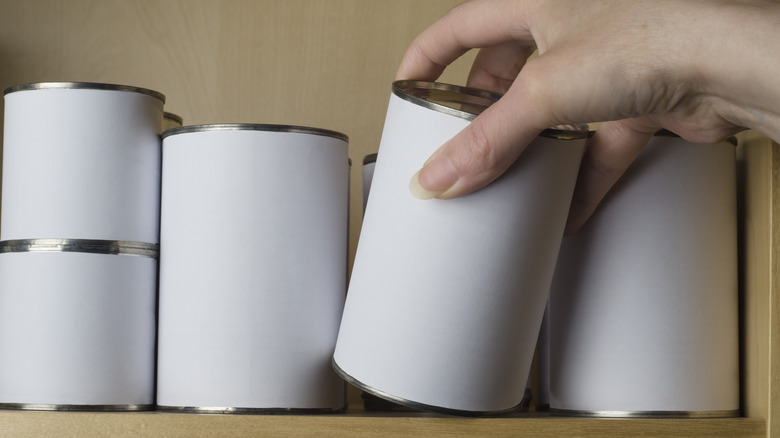Canned Food Is Resilient, But It Still Doesn't Belong In One Part Of The Home
People often have a love-hate relationship with canned foods. Granted there are plenty of myths surrounding them and they can sometimes be controversial, but they are some of the most convenient, budget-friendly, and low-maintenance foods out there. Another major perk is that they can last for a very long time.
Resilience is one of canned food's strong suits, but while they typically withstand a great many things, they tend to go bad when stored in certain conditions. Ideally, they should be kept in a dry place with temperatures between 50°F to 70°F. A place like a garage may seem like a convenient location to store canned goods, but in reality, it's not ideal since the temperature can get higher than the recommended level.
People, who have stored canned foods in garage, soon regretted it. For instance, one Redditor wrote, "It cost me hundreds of dollars in replacing canned goods. We rotate our canned goods (we grew up in the 1960-70's so eating canned food is what we're used to) and after less than a year in garage, we could see/taste a difference in the quality of the food." There's a good reason you should store food, especially canned food, else where.
Humidity harms canned items
The humidity inside a garage can cause metal cans to rust. Although minor rusting is to be expected when you store canned foods for a long time and slightly rusted cans are generally safe to consume, heavily rusted cans are often porous which means bacteria can easily contaminate the food inside. Under no circumstances should you eat the food if the can is rusty from the inside. Deeply dented cans should also be discarded because they are prone to bacterial contamination, according to the U.S. Department of Agriculture. Swollen cans are also a big no-no.
Another reason not to store canned food in a garage is that it might attract pests like rodents, and nobody wants that. Pest control is always an option, but it's better not to take that chance. Besides, canned foods can go bad and lose nutrients when temperatures exceed 75°F anyway, so it's smart to store them somewhere cooler.
Other places where you shouldn't store canned foods are un-insulated attics and freezers. They must be stored away from hot pipes, ovens, or anywhere that's prone to significant temperature change. Right temperatures will keep the nutrients intact and increase the shelf life of canned foods. Pantries, cupboards, and kitchen cabinets are all great spots to store them.

